This article was co-authored by Zora Degrandpre, ND. Dr. Zora Degrandpre is a Natural Health Doctor and Licensed Naturopathic Physician in Vancouver, Washington. She is a grant reviewer for the National Institutes of Health and the National Center for Complementary and Alternative Medicine. She received her ND from the National College of Natural Medicine in 2007.
There are 12 references cited in this article, which can be found at the bottom of the page.
This article has been viewed 28,001 times.
Cold sores are a type of viral infection that cause redness, blisters, and crusty patches around your lips.[1] While they’re harmless and usually clear up on their own, they can be unsightly, so you’ll probably want to get rid of them as quickly as possible. Cold sores can be tricky to treat because the virus that causes them, herpes simplex virus (HSV-1), can’t be cured. However, some essential oils have antiviral properties that could prevent the virus from spreading. If you haven’t had luck with conventional treatments, then essential oils could help. Try them out for yourself and see if they clear your cold sore. If the sore doesn’t go away, then talk to your doctor for more treatment options.
Steps
The Right Oils
Some essential oils do actually have antiviral properties, meaning they prevent viruses from replicating and spreading. This means that if you use the right oils, they might help clear your cold sore. The following essential oils could work for you. If you can, get oils that are diluted down to 3-5% so they don’t irritate your skin. Otherwise, you can dilute them yourself before using them.
-
1Get lemongrass oil for an effective treatment. One study found that lemongrass oil was an effective antiviral and prevents the herpes virus from spreading. Try this oil for the best chance of reducing your cold sore.[2]
- Lemongrass scent is also associated with mood boosting and relaxation, so you might also improve your mood by using lemongrass oil.[3]
-
2Use peppermint oil to relieve the cold sore and headaches. Peppermint oil works similarly and inhibits the herpes virus, so it could effectively treat your cold sore.[4] Peppermint oil could also relieve tension headaches, making this a good choice if you regularly experience headaches.[5]Advertisement
-
3Reduce inflammation with tea tree oil. Tea tree oil might be an effective antiviral, but it also works as an anti-inflammatory. This could reduce the redness and swelling around the cold sore while it heals.[6]
- Tea tree oil is a common treatment for skin ailments like acne because of its anti-inflammatory properties.[7]
-
4Try thyme or ginger for other potentially effective treatments. Evidence isn’t as strong for these 2 oils, but they do show some antiviral properties. If other treatments don’t work, then you can try one of these oils and see if they’re effective.[8]
How to Apply the Oil
Once you’ve chosen the right essential oil, then applying it is easy. First make sure the oil is diluted, or dilute it yourself, so you don’t experience any irritations. Then rub the oil directly onto the cold sore with a cotton swab daily for 4-5 days to see if you notice any improvement. If not, then you can ask your doctor for more treatment options.
-
1Dilute the oil to 3% if it isn’t already diluted. If the oil isn’t diluted, add 3 drops of essential oil per teaspoon of carrier oil like olive of jojoba. This produces a 3% concentration that’s safe for use on your skin. You could also use water if you don't have a carrier oil, but shake the mixture well before you use it.[9]
- Check the label to see if the oil is diluted. If not, it will say "undiluted." If it is, then it will show a percentage that the oil is diluted to, which is usually somewhere between 2 and 10%. If you can't find this information on the label, then don't buy the product.
- Don’t use essential oils on your skin if they aren’t diluted. Undiluted oils are too strong and could irritate your skin.
- In general, oils diluted to 3-5% are safe for use on your skin. However, since your lips are sensitive areas, stick with 3% to avoid any irritation.
-
2Rub a dab of diluted oil directly onto the cold sore. Dip a cotton swab into the oil mixture. Then rub the mixture onto the cold sore and let it soak in.[10]
- Always wash your hands before and after treating your cold sore to avoid spreading the virus.[11]
- Most studies show that essential oils don’t protect cells that aren’t already infected with the virus, so rubbing the oil over large areas won’t prevent the cold sore from getting larger.
-
3Rinse your mouth out if you got any oil in there. Essential oils are not intended for internal use, so make sure you don't swallow any. If any gets in your mouth, swish some water around and spit it out.[12]
-
4Repeat this treatment 3-4 times per day for 4-5 days. Studies show that cold sores might respond to multiple essential oil treatments daily. Try applying the oil mixture 3-4 times per day to inhibit the virus. If the cold sore responds, it should improve within a week.[13]
- The length of time may vary, but studies usually show effects within 4-5 days.[14]
-
5Stop using the oil if you notice any irritation or side effects. While diluted oils are safe for use on your skin, there is still a chance for negative reactions. If you experience any reactions to the oil, stop using it. Contact your doctor if the reaction doesn’t clear up in a few hours.[15]
- Common reactions include redness, swelling, itching, and burning.
- If you aren’t sure how oils will affect you, do a patch test first. Dab a small amount of oil on your forearm and wait a few hours. If you don’t notice any reaction, then using the oil should be safe.[16]
-
6Visit your doctor if you don’t see any results within 2 weeks. While essential oils might help the cold sore clear up, this isn’t guaranteed to work for everyone. If you’ve been treating the cold sore with essential oils for 2 weeks and don’t see any improvement, then you might need further treatment. Visit your doctor or dermatologist for more options.[17]
- Cold sores often improve within 2 weeks on their own even if the essential oils don’t work.
Medical Takeaways
Some essential oils do have antiviral properties and are effective in preventing the herpes virus from replicating. This means that they could clear up cold sores if you’re having an outbreak. You can try this out for yourself if you choose the right oil and dilute it properly. However, this might not work for everyone. If your cold sore doesn’t clear up, then contact your doctor for more treatment options.
Warnings
- Remember that cold sores are contagious, so take steps to avoid spreading the virus during an outbreak. Wash your hands whenever you touch the sore and don’t kiss anyone until the sore is gone. Also don't share any items with others, like utensils, towels, razors, cups, or anything else that might touch your mouth.[18]⧼thumbs_response⧽
- Ask your doctor before using essential oils on children. They may need a weaker concentration, or your doctor may tell you not to use oils on children at all.[19]⧼thumbs_response⧽
References
- ↑ https://www.betterhealth.vic.gov.au/health/conditionsandtreatments/cold-sores
- ↑ https://onlinelibrary.wiley.com/doi/pdf/10.1111/j.1348-0421.2003.tb03431.x
- ↑ https://www.ncbi.nlm.nih.gov/pmc/articles/PMC3217679/
- ↑ https://pubmed.ncbi.nlm.nih.gov/13678235/
- ↑ https://www.nccih.nih.gov/health/peppermint-oil
- ↑ https://pubmed.ncbi.nlm.nih.gov/21607799/
- ↑ https://pubmed.ncbi.nlm.nih.gov/2145499/
- ↑ https://aac.asm.org/content/51/5/1859
- ↑ https://www.takingcharge.csh.umn.edu/how-do-i-choose-and-use-essential-oils
- ↑ https://pubmed.ncbi.nlm.nih.gov/21607799/
- ↑ https://www.betterhealth.vic.gov.au/health/conditionsandtreatments/cold-sores
- ↑ https://www.takingcharge.csh.umn.edu/how-do-i-choose-and-use-essential-oils
- ↑ https://pubmed.ncbi.nlm.nih.gov/21607799/
- ↑ https://onlinelibrary.wiley.com/doi/pdf/10.1111/j.1348-0421.2003.tb03431.x
- ↑ https://www.takingcharge.csh.umn.edu/how-do-i-choose-and-use-essential-oils
- ↑ https://www.takingcharge.csh.umn.edu/explore-healing-practices/aromatherapy/are-essential-oils-safe
- ↑ https://my.clevelandclinic.org/health/diseases/21136-cold-sores
- ↑ https://my.clevelandclinic.org/health/diseases/21136-cold-sores
- ↑ https://www.hopkinsallchildrens.org/ACH-News/General-News/Are-Essential-Oils-Safe-for-Children
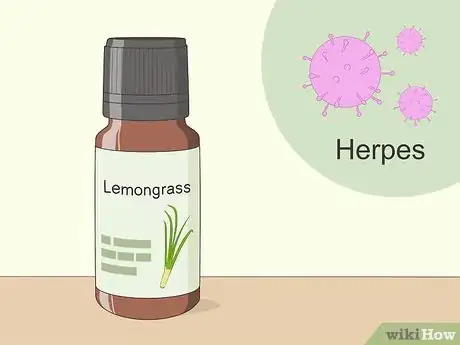
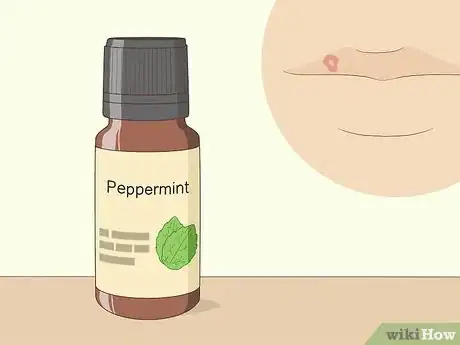
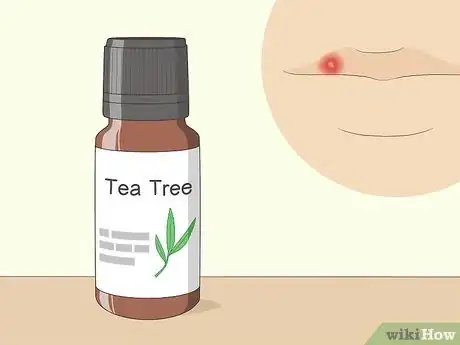
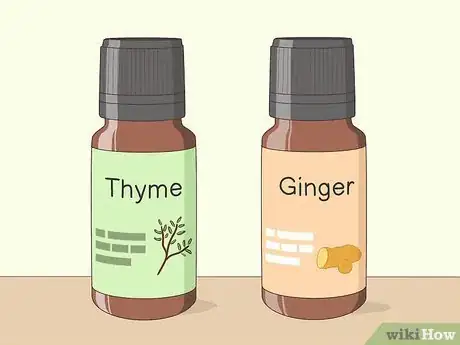
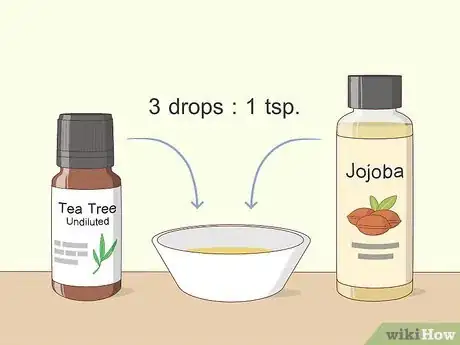
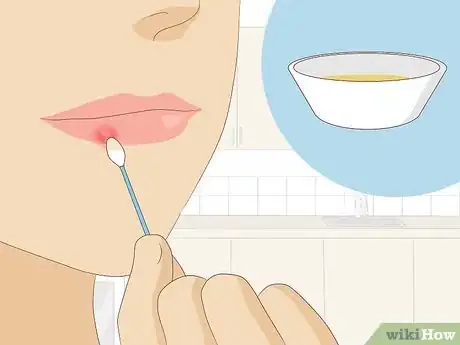
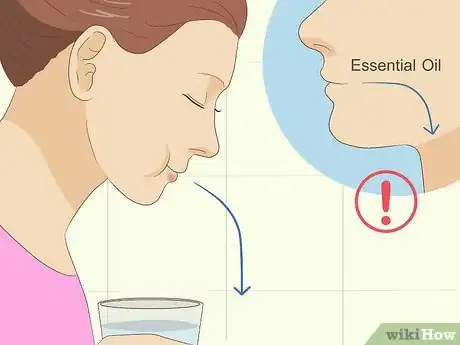
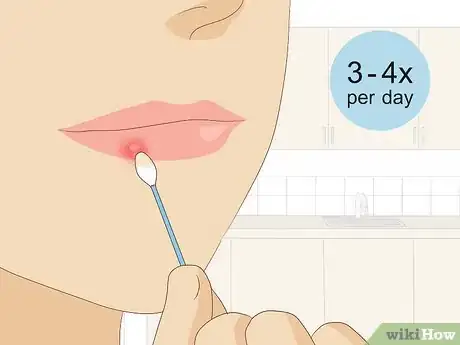
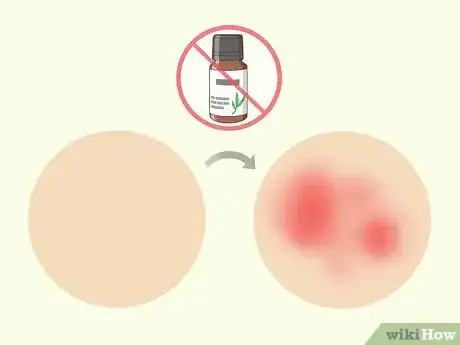
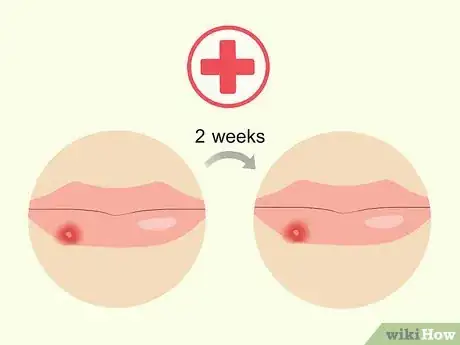

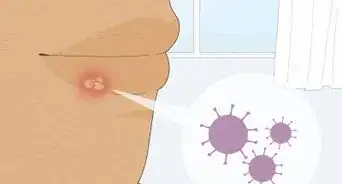




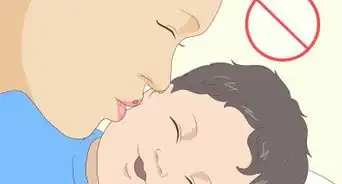

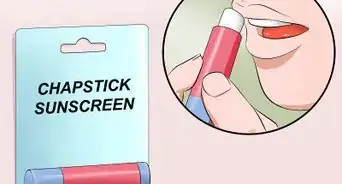
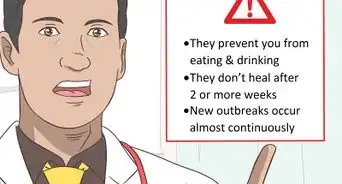









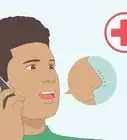
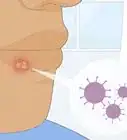





































Medical Disclaimer
The content of this article is not intended to be a substitute for professional medical advice, examination, diagnosis, or treatment. You should always contact your doctor or other qualified healthcare professional before starting, changing, or stopping any kind of health treatment.
Read More...